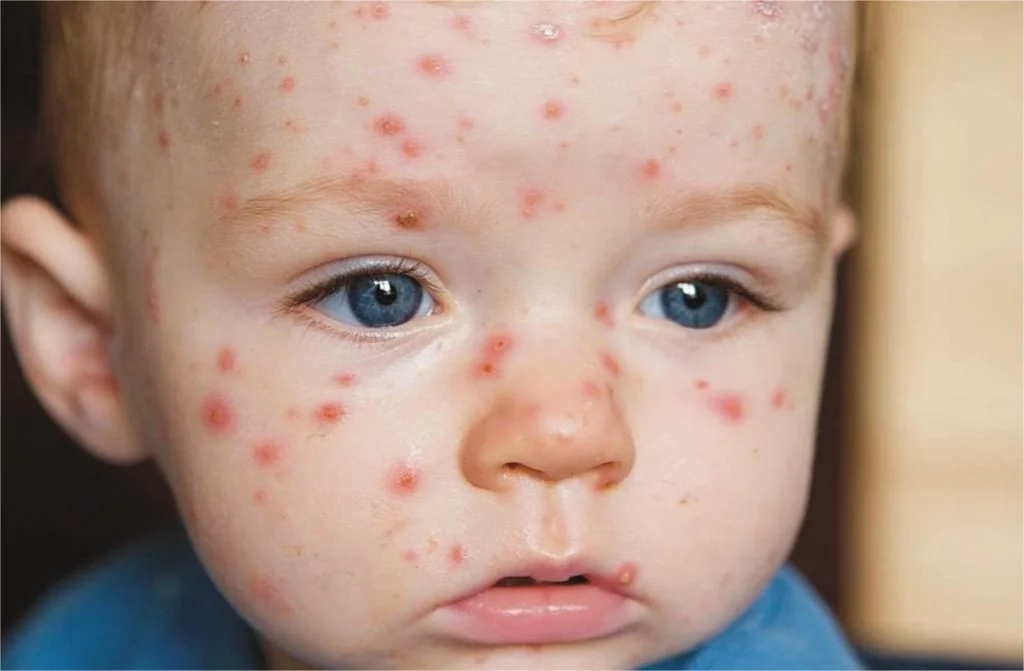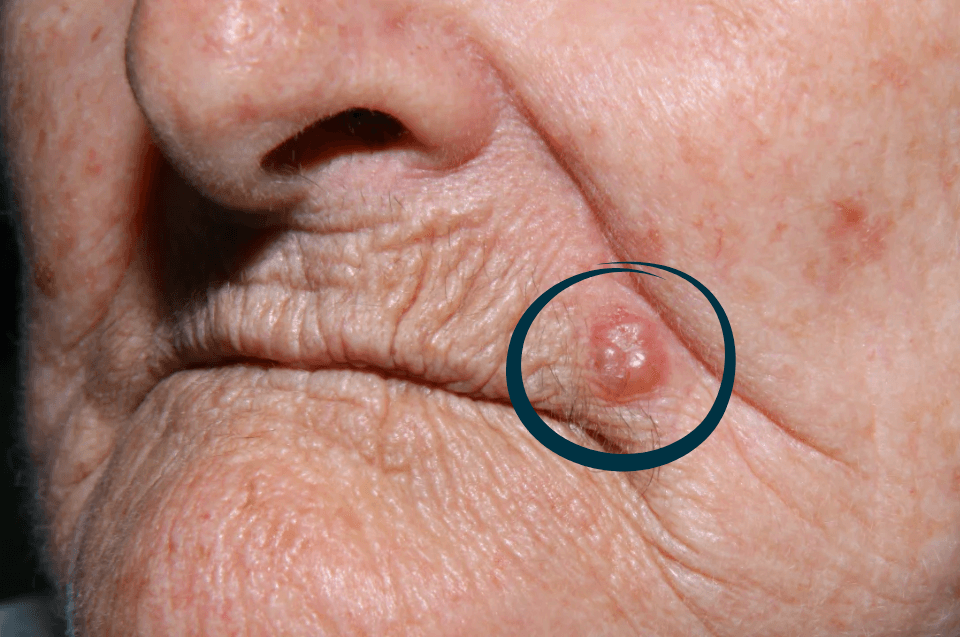Chickenpox, also known as varicella, is a highly contagious infectious disease caused by the varicella-zoster virus. Although it is most common in childhood, it can also affect teenagers and adults who have never been exposed to the virus or vaccinated. While generally considered a mild illness, chickenpox can lead to serious complications in certain groups.
In this article, you’ll learn what chickenpox is, how it presents, how it spreads, the necessary precautions, and how to safely prevent it.
What is chickenpox?
Chickenpox is a viral infection characterized by an itchy rash with fluid-filled blisters, along with flu-like symptoms. It is caused by the varicella-zoster virus—the same virus that can later cause shingles (herpes zoster) years after the initial infection.
It is one of the most common exanthematous (rash-producing) diseases in childhood, alongside measles, rubella, and roseola. Before the introduction of the vaccine, nearly all children contracted chickenpox by the age of 10.
Symptoms of chickenpox
Symptoms usually appear between 10 and 21 days after exposure to the virus. Early signs are often mild but rapidly progress to the classic presentation:
Moderate fever (typically between 99.5°F and 102.2°F / 37.5°C and 39°C)
General malaise and fatigue
Loss of appetite
Headache
Rash with small red spots that turn into fluid-filled blisters and later form scabs
Intense itching
The rash usually begins on the face, scalp, and torso and then spreads to the rest of the body. New lesions may continue to appear in waves for up to five days.
How it spreads
Chickenpox is extremely contagious. The virus spreads mainly through airborne droplets expelled when speaking, coughing, or sneezing. It can also spread through direct contact with fluid from skin blisters.
An infected person can transmit the virus from 1 to 2 days before the rash appears until all blisters have formed scabs—typically about 7 days.
Closed environments such as daycare centers and schools often facilitate outbreaks among unvaccinated children.
Who is at higher risk?
Most healthy children recover without complications, but some groups are more likely to develop severe disease:
Infants under 1 year of age
Unvaccinated adolescents and adults
Pregnant women (due to risk to both mother and fetus)
Immunocompromised individuals (due to illness or immunosuppressive medications)
In these cases, chickenpox may lead to serious complications such as pneumonia, encephalitis, secondary bacterial skin infections, and even hospitalization.
Treatment of chickenpox
In most cases, treatment is symptomatic, aimed at relieving discomfort while the body fights the virus. Recommended measures include:
Rest and proper hydration
Fever control with medications such as acetaminophen (paracetamol)
Antihistamines to reduce itching
Oatmeal or potassium permanganate baths to soothe the skin
Keeping fingernails trimmed to avoid skin infections from scratching
Important: The use of aspirin (acetylsalicylic acid) in children with chickenpox should be avoided, as it is associated with Reye’s syndrome—a rare but serious complication.
For severe cases or high-risk groups, doctors may prescribe the antiviral medication acyclovir, which is most effective when started within the first 24 to 48 hours after the onset of symptoms.
Prevention: the importance of vaccination
The chickenpox vaccine is the most effective way to prevent the disease and its complications. It is part of the routine childhood immunization schedule in many countries and is usually given in two doses—the first at 12 months of age and the second between ages 4 and 6.
The vaccine is safe, well-tolerated, and can be administered alone or in combination with others (such as the MMRV: measles, mumps, rubella, and varicella).
Unvaccinated individuals—especially adults who have never had chickenpox—may also benefit from vaccination, particularly if they belong to high-risk groups or work in environments with a high risk of exposure.
Facts, Myths, and Scientific Advances on Chickenpox
💡 Did you know?
After infection, the varicella-zoster virus remains “dormant” in the body and can reactivate later in life as shingles, a painful condition common in people over 50.
❌ Myth:
“Getting chickenpox once gives lifelong immunity.” — While rare, it is possible to contract chickenpox more than once, especially if the initial case was very mild or if the immune system is weakened.
✅ Fact:
Even vaccinated individuals can develop chickenpox, but symptoms are typically much milder, and the risk of complications is much lower. This is known as “breakthrough” or “modified” chickenpox.
🧪 Scientific advancement:
Recent studies are investigating whether universal chickenpox vaccination could reduce the incidence of shingles in adults, as lower circulation of the virus may reduce the reactivation of latent infections.
👶 Pediatric recommendation:
In many countries, chickenpox vaccination is freely available through public health programs. However, adherence to the second dose remains low in some places, and completing both doses is essential for full protection.



